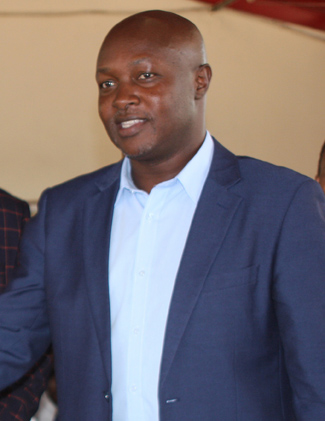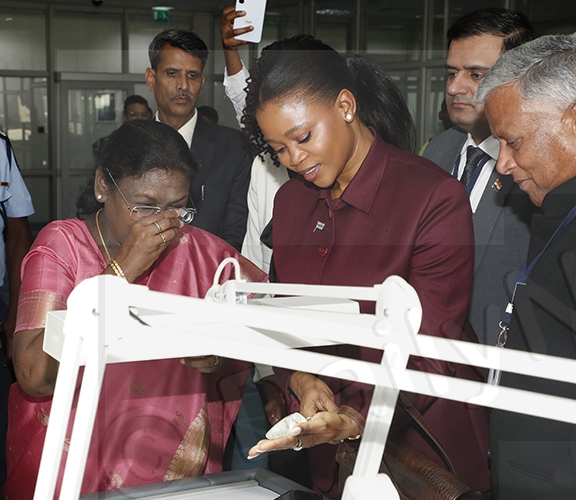BPC proposes 5 per cent tariff hike
23 Aug 2021
Botswana Power Corporation (BPC) is proposing a five per cent tariff increase for the financial year 2022/23 in order to raise the required revenue of P6.15 billion, says chief executive officer, Mr David Kgoboko.
Presenting the proposal virtually to the Botswana Regulatory Authority (BERA) tariff review committee on Friday, Mr David Kgoboko said the company’s financial performance was a challenge due to non-cost reflective tariffs, the constant interruption of power, low performance of the Morupule B power station and the increasing cost of imported power.
Despite the financial constraints, Mr Kgoboko said remedial works were ongoing to improve power supply and offer competitive and cost effective tariffs. Mr Kgoboko also said the government subsidy that had been cushioning the company’s finances had been reduced significantly over the past five years.
He emphasised that the company must subscribe to the best practices in the maintenance of its assets.
Mr Kgoboko also said the proposed increase was informed by the company’s transformation strategy (Masa 2020) aimed at ensuring that BPC was financially self-sustaining to provide reliable and affordable access to electricity.
He said the strategy would improve assets and projects management, customer care and generate enough power to match customers’ demands. He said the proposed tariff increase was based on the yearly determination of the required revenue to meet the operating, maintenance and financing costs.
“The proposal also considered future energy demands, especially from large power users such as mines,” he said.
The public hearing panel wanted to know how the tariff increase would address challenges such as constant power cuts, load shedding, importation of power and how the completion of maintenance works at Morupule B would benefit power supply.
Responding to questions from the public hearing panel, Mr Kgoboko concurred that some localities were not connected to the BPC power grid and were supplied with power imported from neighbouring countries.
He said connecting such localities to the local grid would be considered if it was cost effective.
On frequent power cuts, Mr Kgoboko said the company’s strategy catered for an improved power supply. He highlighted the need to revamp maintenance and beef up project management systems. Mr Kgoboko said the strategy was also aimed at improving and sustaining performance with mechanisms to address the current maintenance backlog and stabilise power supply.
Mr Kgoboko also appreciated contributions from various stakeholders and customers at the public hearing.
They acknowledged the need for BPC to be self-sufficient and to deliver quality service to the nation. “We are thankful for the support of the public and we assure them that we will do anything possible to keep competitive and reasonable power tariffs.
Our aim is to be efficient in the maintenance of our power generating plants and supply network and ultimately address the power cuts,” he said.
Mr Kgoboko said the company was also diversifying its power generation by building solar power plant.
Another BPC official, Mr Edward Rugoye, who is responsible for power generation, said the corporation was trying to minimise technical power losses in the system.
He said the country was among those with the least technical power losses, adding that they depended on the location of power generating plants, loads transmitted, length of transmission and distribution lines and transformers in use. “The company has engaged in high level bench marking exercises to improve its systems,” said Mr Rugoye.
He also said BPC suffered non-technical power losses. “The non-technical power losses resulted from, among others, illegal power connections and our internal operations. Missing some points during metering or connecting meters incorrectly will result in loss of revenue,” said Mr Rugoye.
He said a smart grid would address the discrepancy, as it would strike a balance between the power received by a transmitter and the amount sent to a customer.
Mr Rugoye also revealed that 11 roof top solar power projects were approved, noting that the uptake of the project was minimal.
The tariff review committee was chaired by BERA chief executive officer, Ms Rose Seretse.
The public hearing received contributions from Botswana Chambers of Mines, private power generating companies and the media.
Ms Seretse said a thorough assessment would be done in validating the proposed tariff increase.
She said written submission from the public and other concerned parties would also be taken into consideration.
BERA’s chief operations officer, Mr Duncan Morotsi said the public hearing was to allow stakeholders and consumers to interrogate BPC’s proposed tariff increase and establish whether it was worth it.
“You are all here to support and oppose the application,” he said. ends
Source : BOPA
Author : Moshe Galeragwe
Location : GABORONE
Event : Tariff review committee
Date : 23 Aug 2021






